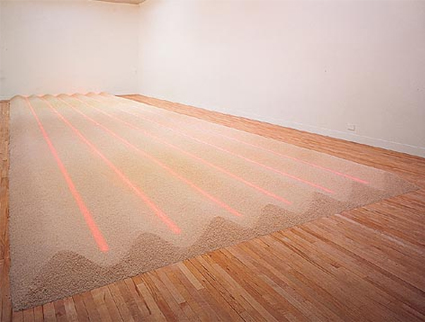The Turner Prize may be won, but the controversy rages on. Andrew Graham-Dixon marvels at all the fuss
The Turner Prize is intended ''to promote public discussion of new developments in contemporary art'', but discussion may not be quite the right word for what it promotes . . .
''This seventon pile of rice could make a meal for 100,000 people. But is it art?'' (Headline in The Daily Telegraph)
''If I stood in the middle of the road and took my trousers down, I'd attract the same attention and I'd only charge a tenner. Artists - they're all crackpots aren't they, no wonder they go cutting their ears off.'' (A Man in the Street, quoted in The Independent on Sunday under the headline ''Is this art?'')
''If there's a dead cow and a heap of scrap metal, it must be the Turner Prize again.'' (The Sunday Times).
And that is just the posh papers. If I had a pound for every time the question ''But is it art?'' had been voiced in newsprint and on the air since the 1993 Turner Prize shortlist was announced, I might have made more money than Rachel Whiteread did last night when she won it. Public discussion of art, it may be said, is the last thing that the prize has promoted. Vituperation, spleen, the widening of rifts between the various bitter factions that make up the British art world and the endless asking of that same old question, ''But is it art?'': these are what it promotes. But is that a reason to get rid of it? Perhaps not.
The Turner Prize does serve an extremely useful function even if it was not the one it was originally intended to serve. It focuses attention on how almost primevally backward, how dull, how...


